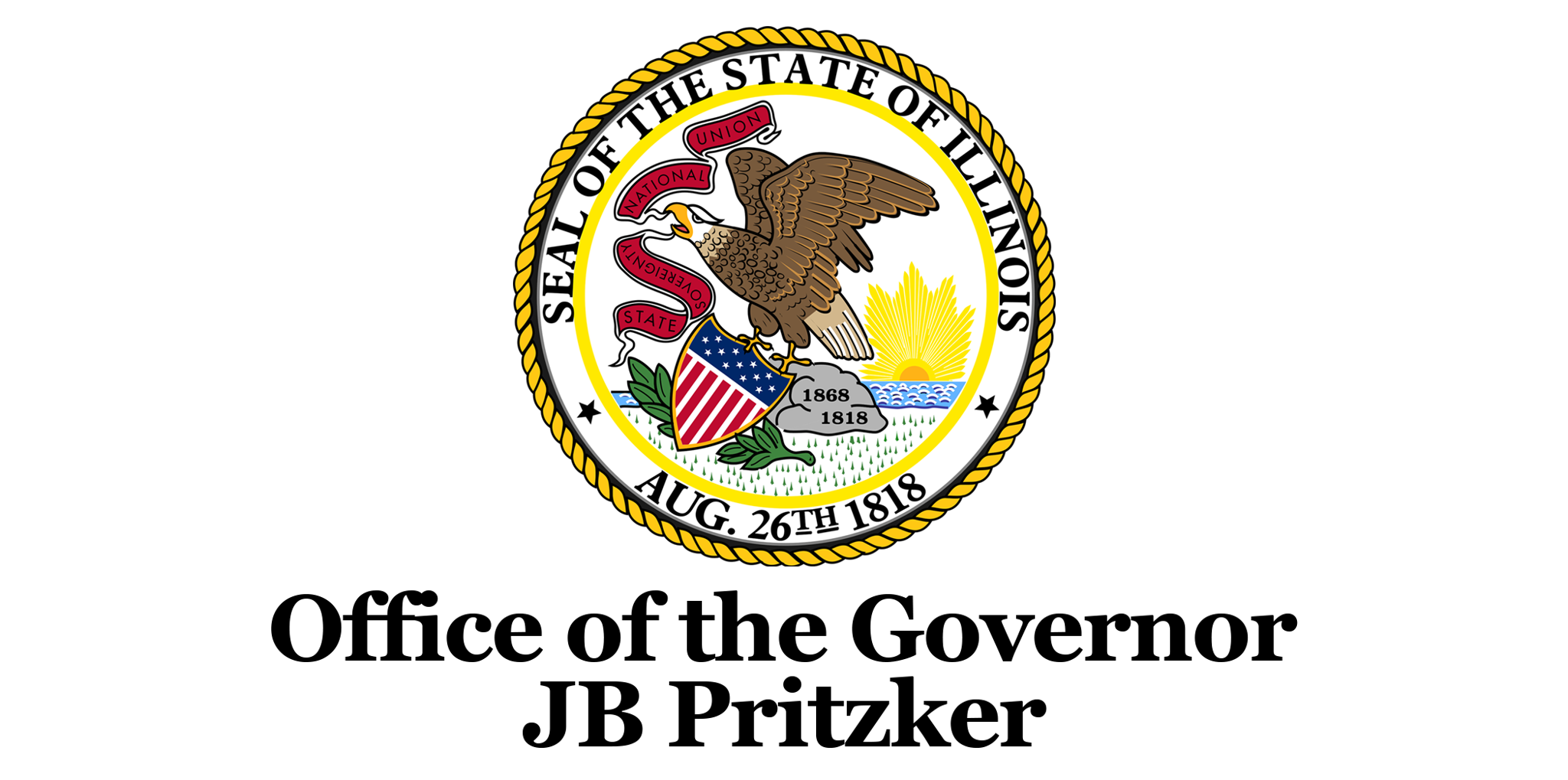Gov. Pritzker Releases Illinois Birth Equity Blueprint
The report builds upon groundbreaking Illinois Birth Equity Initiative
September 25, 2025

CHICAGO - Today, Governor JB Pritzker, Lieutenant Governor Stratton, and the Illinois Department of Public Health (IDPH) released the Illinois Birth Equity Blueprint - a roadmap designed to improve maternal healthcare and birth outcomes in Illinois. The Blueprint builds upon the Illinois Birth Equity Initiative, which was featured on MSNBC during a panel to discuss the Blueprint release hosted by Morning Joe’s Mika Brzezinski with panelists Lt. Governor Juliana Stratton, Chicago Beyond Founder and CEO Liz Dozier, and actress and Baby Yams founder Tatyana Ali.
“The Illinois Birth Equity Blueprint is the way forward in maternal health and birth equity. Conceived, written, and published with the input of experts, advocates, community leaders, and providers across the state – this report is a roadmap for unlocking an improved future for Illinois’ mothers and families,” said Governor Pritzker. “Since our first days in office, Lieutenant Governor Stratton and I have been committed to the same goal: to make Illinois the best state to raise a family. We cannot get there until it is safe and affordable for every mother to do so, and this blueprint outlines the steps to accomplish that.”
“The Birth Equity Initiative acknowledges that it is a right, not a privilege, to carry a healthy pregnancy, deliver a healthy baby, and make it home to raise that baby in a healthy environment – a kind of peace of mind that has never been afforded to Black women,” said Lieutenant Governor Stratton. “This Initiative is as much about building trust with our people and communities as it is about creating access to healthcare. Our administration is determined to make Illinois the best state in the nation for all women, regardless of race, zip code, or income status.”
Illinois is recognized as a national champion for birth equity, and the Birth Equity Blueprint outlines four strategic priorities to improve maternal health. The blueprint represents a multi-agency initiative across the Governor’s Office, Lieutenant Governor’s Office, Illinois Department of Public Health (IDPH), Illinois Department of Human Services (IDHS), Illinois Department of Healthcare and Family Services (HFS), and more. The blueprint also identifies systemic inequities in maternal healthcare and birth outcomes due to systemic racism and geographic inequalities and provides four strategic goals.
The Illinois Birth Equity Blueprint’s Four Strategic Goals:
- Expand Investments in Health Quality and Provider Support
- Illinois will build on existing efforts to improve maternity care quality by scaling models that reduce care fragmentation and by strengthening incentives and supports that empower providers to deliver high quality, person-centered care.
- Promote Access to Birthing and Specialty Care Services
- Illinois will strengthen and rebuild its maternal health infrastructure by examining the root causes of OB unit closures, identifying sustainability solutions, exploring innovations that enable alternative care delivery models, and investing in a resilient maternal care workforce.
- Establish Universal Risk Assessment, Referral, and Care Coordination Framework
- Illinois will continue to improve early identification and intervention by expanding risk assessment, coordination and referral starting at pregnancy, deepening integration of mental health care, and improving coordination between clinical and community-based care.
- Develop Shared Measurement and Accountability Framework for Maternal Health and Birth Equity
- Illinois will advance data systems to monitor population-level maternal health data, define and align core metrics, and promote transparency and shared accountability for collective progress toward birth equity.
“The Illinois Department of Public Health recognizes that maternal health is essential to the health and well-being of families and communities, and we commit to improving systems to address the disparities that persist in our state,” said IDPH Director Dr. Sameer Vohra. “IDPH is honored to partner with Gov. Pritzker, Lt. Gov. Stratton and other state agencies, community partners, and funders to bring this Blueprint forward. It is an important first step in achieving the collective impact necessary to improve maternal health across Illinois.”
“This Blueprint will build upon birth equity initiatives already underway in Illinois, including the expansion of coverage for those served by Medicaid to include certified doulas and lactation consultants,” said HFS Director Elizabeth M. Whitehorn. “Improving maternal health is a key focus for us, with roughly 50% of all births in Illinois covered by Medicaid. Establishing these metrics to guide further progress is an exciting next step towards our shared goal of improving maternal health and birth outcomes for all state residents.”
"With Governor Pritzker’s vision, Illinois has shown incredible compassion to those growing and raising families – with a clear emphasis on how important the first few years of life are. From nutritional support for pregnant people and infants, to early intervention and childcare assistance, to home visiting, and so much more that the State of Illinois already provides services for – these next steps help build an even more solid foundation for our shared future,” said Dulce M. Quintero, Illinois Department of Human Services Secretary. “And as we do this, we commit to doing so equitably, ensuring that resources and support are targeted to communities that have historically faced barriers to access and opportunity.”
“The Blueprint is a giant step forward in ensuring maternal health and birth equity for all women and children of Illinois,” said Heidi E. Mueller, Illinois DCFS Director. “We know that supporting maternal health is a crucial step in supporting the safety and wellbeing of children and families and are proud to support this work. We applaud the efforts of this committee to equalize health care and truly make Illinois the best state to live and work in for all its residents.”
“I want to thank Governor Pritzker, Lt. Governor Stratton, and the birthing justice advocates for their tireless work advancing birth equity and for recognizing the importance of this issue. As an advocate for birth equity, I was honored to sponsor this life-saving legislation. Every person—regardless of race or income—deserves a safe and healthy birthing experience,” said State Senator Lakesia Collins (D-Chicago). “As a mother, I know how vital these investments are for women across my district, ensuring access to supportive, community-based care. Illinois continues to lead the way in maternal health, and I will keep fighting to guarantee that every mother and child has access to safe, quality care.”
“By promoting a comprehensive range of health assistance options for all mothers-regardless of race, income or creed-the Birth Equity Act is significant progress towards the universal access to high-quality care Illinoisans deserve,” said state Rep. Robyn Gabel (D-Evanston). “The mothers who can now afford doulas, the families who can now afford in- home visits from doctors and the healthcare providers who no longer are forced to see patients go without the treatment they need all will benefit enormously from this legislation. There is more work to be done, but this is a landmark for health equity in Illinois.”
Improving health outcomes for new mothers in Illinois has been a priority for Governor Pritzker and Lt. Governor Stratton since their first term in office. In 2021, Illinois became the first state in the nation to extend full Medicaid benefits from 60 days to 12 months postpartum. The extension of Medicaid postpartum benefits strengthened continuity of care and targeted significant health disparities for Black women during the postpartum period. Additional legislation passed in 2021 paved the way for reimbursement for doulas, lactation support specialists, home visitors, and more. This increase in access will also help reduce morbidity and mortality for Black women. That same year, Governor Pritzker also took legislative action to better serve pregnant mothers by allowing for the licensure and certification of midwives in Illinois.
The Illinois Birth Equity Initiative originated from a conversation Lt. Governor Stratton hosted in 2023 between a group of Black midwives and doulas who emphasized the ongoing maternal mortality crisis that disproportionately takes the lives of Black women. This work culminated in the Birth Equity Act signed in July of 2024, which ensures competitive Medicaid reimbursement rates for doulas, lactation consultants, home visitors, and other community-based care providers who help new mothers before, after, and during birth.
Driven to action by the data reported in the 2021 and 2023 Illinois Maternal Mortality and Morbidity reports and ongoing conversations in community, Governor Pritzker and Lieutenant Governor Stratton launched the Illinois Birth Equity Initiative in February of 2024. This initiative spurred new investments, drove legislative change, and announced a new multi-agency strategic planning initiative led by IDPH, which would become the Illinois Birth Equity Initiative. Statewide investments for this initiative so far in Fiscal Year 2025 include:
- $12 million in child tax credits
- $5 million to expand home visits
- $1 million in a diaper pilot program for new parents
- $1 million for the Chicago South Side Birth Center
- $4.5 million in birth equity seed grants which have helped fund the following:
- 186 doulas trained across two quarters of implementation, significantly expanding access to culturally competent perinatal support.
- 79 lactation consultants trained, enhancing breastfeeding support capacity across communities.
- 110,647 individuals reached through education and outreach services.
- 7,158 individuals referred to critical maternal and reproductive health services.
###
